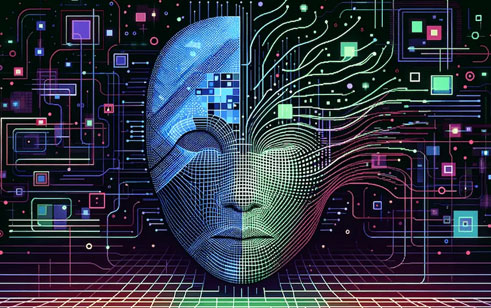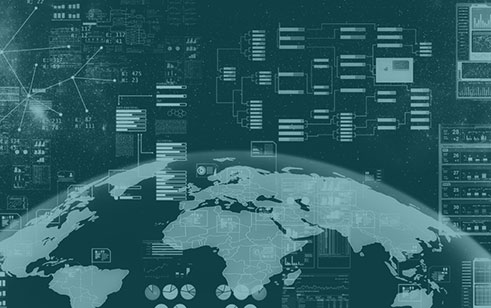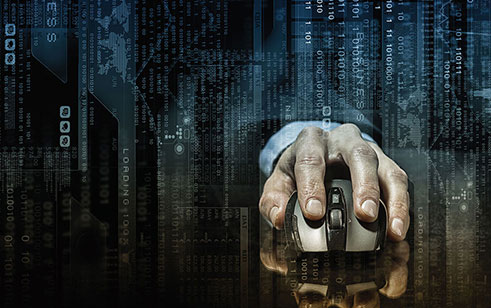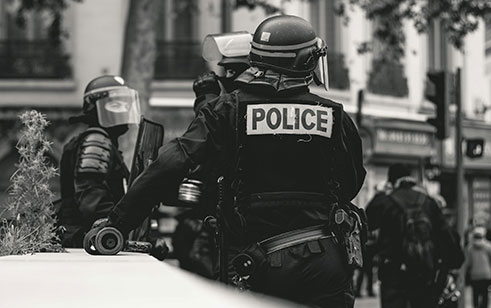The advancement of technology has given wings to security, enhancing the way systems work. One such system that has gathered momentum recently is called facial recognition, which is the new face of Artificial Intelligence. The latest inventions have occurred to make lives easy and more comfortable, with a bright future ahead. Airports are incorporating the facial recognition software to make security checks quicker and less of a hassle.
Facial recognition is a biometric system to identify and authenticate a person’s identity by just his facial expressions. The face recognition software is designed in a manner that maps the facial features of a person and then stores it in its database. The image so stored is then used to match the person’s identity with that saved image.
With devices like the iPhone, facial recognition is a newly evolved feature to unlock your phone, with no need to enter a four-character password or a fingerprint. The technology involved isn’t very costly and involves less processing.
The face recognition software uses a deep learning algorithm to compare the image of an individual with the one stored in the database. If the live image matches with the stored image, then only the identity of the person is validated. If not, then he’s in trouble.
Facial recognition has emerged as one of the fastest methods to identify and verify an individual’s true identity, just by matching his/her face to the geometrical image saved in the database.
Facial Recognition
A lot of countries have face recognition systems incorporated at airports, to make check-ins and check-outs easier and less time-consuming. The Dulles airport in Washington has installed the face recognition software to ease the identification process. In contrast to fingerprint or entering passwords, face recognition is a better recognition system that is independent and the safest because no two faces can have the exact features.
The measurement of the relative dimensions of a face by just clicking a picture is unique for each face and is hence highly reliable. Facial recognition at airports has been quite promising so far and takes half the time to verify identities of individuals that otherwise would not happen in the case of a boarding pass. The face recognition system at airports is the best way to confirm identities without having to enter passwords or passing various security checks. Your face is enough to verify your identity.
Not only the US, but many other countries also use the face recognition software as a part of their airport security systems, to make verification easy, without having to compromise with security. This system is not giving a fight to other biometrics software but is slowly emerging out to shine as the primary means of identification for security purposes.
The face recognition system has emerged to be a user-friendly security system and is here to stay. India is also planning to incorporate the face recognition software at airports in the metropolitan cities for a start, to make security checks less of a headache, both for the people and the airport authorities. A lot of companies are coming into action and employing the face recognition software as a security system in their offices, the scale of which needs to be expanded. No compromises can be made when it comes to the security of a nation as a whole and face recognition is just the system that we need.
With the major motive to prevent any malicious activity directed towards terrorism, security needs to tighten and face recognition is the best way to help tackle that. With the growing popularity of the face recognition software, nearly all countries will be actively using the technology at their airports and other places for security checks in the years to come.

As global election systems brace for the 2024 cycle, they face unprecedented threats from advancing AI technologies and escalating cybersecurity risks.
Learn More
In the digital age, social media has ascended as the paramount platform for individuals to disseminate opinions, amplify concerns, polarize communities, and craft propaganda.
Learn More
Social engineering attacks have emerged as a dominant method for cyber fraudsters to penetrate organizations.
Learn More
The banking, financial services, and insurance (BFSI) industries are undergoing a significant and rapid change driven by digitalization. This revolution is essential as organizations respond to evolving customer expectations, the need for superior business results, and increasing regulatory requirements.
Learn More
The World is growing at a rapid pace, and with that, advancements in information and communication technology are moving at a breakneck speed. In today's digital age, where information flows freely across the internet, the realm of law enforcement has undergone a unique transformation.
Learn More